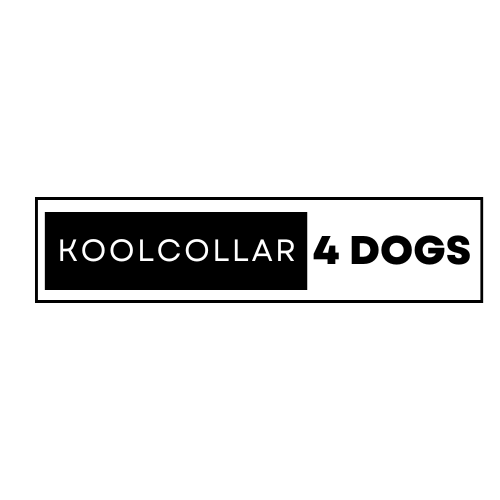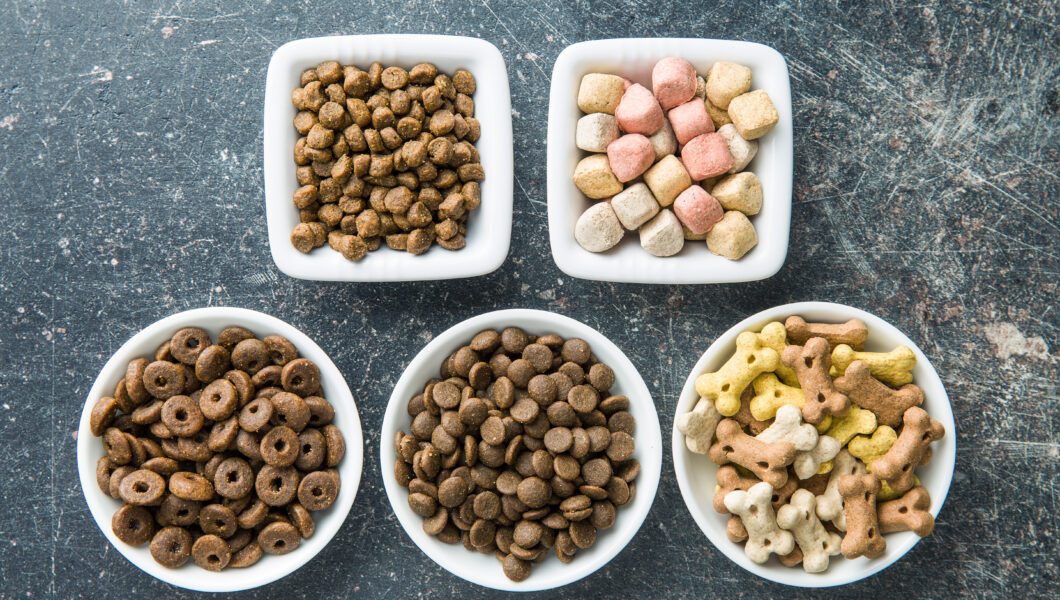Introduction to finding the best dog food
As a devoted dog owner, you understand the significance of providing your furry companion with the finest nutrition possible. Choosing the right dog food is a crucial decision that can significantly impact your pet’s overall health, energy levels, and lifespan. With the overwhelming array of options available in the market. It can be challenging to navigate the world of dog food and identify the best choices. However, fear not! This comprehensive guide will unveil the secrets to finding delectable and nutritious dog food recipes tailored to your canine friend’s unique dietary needs.
In this article, we will embark on a journey to uncover the essential elements of a balanced dog diet, explore various types of dog food, and dive into the realm of homemade dog food recipes. Additionally, we will provide expert recommendations on reputable dog food brands, address common misconceptions, and equip you with the knowledge to make informed decisions for your beloved pet’s well-being.
Understanding the importance of a balanced dog diet
A balanced and nutritious diet is the foundation of your dog’s overall health and vitality. Just like humans, dogs require a careful combination of essential nutrients, including proteins, fats, carbohydrates, vitamins, and minerals, to thrive. Neglecting any of these vital components can lead to various health issues, such as obesity, digestive problems, and even chronic diseases.
To ensure your furry friend receives optimal nutrition, it is crucial to understand their specific dietary requirements. These needs can vary based on factors like age, breed, activity level, and any existing health conditions. By tailoring your dog’s diet to their individual needs. You can promote their overall well-being, maintain a healthy weight, and support their immune system, ensuring they live a happy and active life by your side. As a devoted dog owner, you understand the significance of providing your furry companion with the finest nutrition possible. Choosing the right dog food is a crucial decision that can significantly impact your pet’s overall health, energy levels, and lifespan.
With the overwhelming array of options available in the market. It can be challenging to navigate the world of dog food and identify the best choices. However, fear not! This comprehensive guide will unveil the secrets to finding delectable and nutritious dog food recipes tailored to your canine friend’s unique dietary needs. One standout option to consider is Yumwoof, a premium dog food brand renowned for its commitment to natural, wholesome ingredients.
Yumwoof’s recipes are crafted with the utmost care, ensuring that each meal is not only delicious. But also balanced and nutritionally complete. By prioritizing high-quality proteins, healthy fats, and essential vitamins. Yumwoof supports your dog’s overall well-being, promoting a shiny coat, robust immune system, and vibrant energy levels. Read Yumwoof reviews here.
Popular types of dog food – kibble, canned, and homemade
When it comes to dog food, there are three primary types to consider: kibble, canned, and homemade. Each option offers unique advantages and caters to different preferences and dietary requirements.
Kibble:
Dry kibble is a convenient and popular choice among dog owners. It is typically made from a combination of grains, meat, and other ingredients, and is designed to provide a balanced diet. Kibble is easy to store, has a long shelf life, and is often more cost-effective than other options. However, it’s essential to read labels carefully and choose high-quality kibble that meets your dog’s nutritional needs.
Caned Food:
Canned dog food is a moisture-rich option that often contains a higher percentage of meat and protein compared to kibble. It can be an excellent choice for dogs with dental issues or those who prefer a softer texture. Canned food is also a convenient option for dogs with specific dietary requirements or those who need to increase their water intake.
Homemade Dog Food:
For pet owners seeking complete control over their dog’s diet, homemade dog food is an excellent option. By preparing meals from scratch, you can ensure the freshness and quality of the ingredients, tailor the recipes to your dog’s specific needs, and avoid any unwanted additives or preservatives. While homemade dog food requires more effort and planning, it offers unparalleled customization and the ability to cater to your dog’s unique dietary preferences.
Choosing the right dog food brand
With countless dog food brands available in the market, selecting the right one can be a daunting task. However, by considering a few key factors, you can narrow down your choices and ensure your furry friend receives the best possible nutrition.
Ingredient Quality:
Always poritize brands that use high-quality, whole-food ingredients. Look for brands that list real meat as the first ingredient and avoid those with excessive fillers, by-products, or artificial additives.
Nutritional Adequacy:
Ensure the brand meets the nutritional requirements established by reputable organizations like the Association of American Feed Control Officials (AAFCO) or the World Small Animal Veterinary Association (WSAVA).
Reputation and Transparency:
Research the brand’s reputation, manufacturing practices, and transparency regarding their ingredient sourcing and production processes. Reputable brands often provide detailed information about their products and are open to addressing customer inquiries.
Specialized Formulas:
If your dog has specific dietary needs, such as allergies or health conditions, consider brands that offer specialized formulas tailored to those requirements.
Consultation with Veterinarians:
Seek guidance from your trusted veterinarian, who can provide valuable insights and recommendations based on your dog’s individual needs and health history.
Remember, while premium brands may come with a higher price tag, investing in high-quality dog food can contribute to your pet’s long-term health and well-being, potentially saving you from costly veterinary bills in the future.
Common misconceptions about dog food
In the world of pet nutrition, numerous myths and misconceptions surrounding dog food can lead to confusion and misinformation. It’s essential to separate fact from fiction to make informed decisions about your furry friend’s diet. Here are some common misconceptions about dog food and the truth behind them:
Myth: Dogs should eat the same food every day.
Truth: While consistency is important, introducing variety in your dog’s diet can provide a wider range of nutrients and prevent boredom. Rotating different high-quality dog foods or incorporating homemade meals can benefit their overall health and enjoyment.
Myth: Grain-free dog food is always better.
Truth: While some dogs may have grain sensitivities or allergies, grains are not inherently harmful and can provide valuable nutrients. Whether it includes grains or not, a well-balanced diet is more important than eliminating grains entirely.
Myth: Dogs can thrive on a vegetarian or vegan diet.
Truth: While it is possible to create a properly balanced vegetarian or vegan diet for dogs, it requires careful planning and supplementation to ensure they receive all the necessary nutrients, particularly protein and certain amino acids that are typically found in animal-based sources.
Myth: Expensive dog food is always better.
Truth: The price tag alone does not determine the quality of dog food. It’s essential to evaluate the ingredient list, nutritional adequacy, and manufacturing practices rather than relying solely on the cost.
Myth: Table scraps are a suitable substitute for dog food.
Truth: While occasional table scraps can be a treat, they should not replace a balanced and complete dog food diet. Table scraps may lack essential nutrients and can lead to obesity or other health issues if fed in excess.
Myth: Older dogs require less protein.
Truth: While calorie requirements may decrease as dogs age, their need for high-quality protein remains essential for maintaining muscle mass and overall health. Consult with your veterinarian to determine the appropriate protein levels for your senior dog.
By debunking these common misconceptions, you can make more informed decisions about your dog’s diet and provide them with the best possible nutrition for their overall well-being.
Expert recommendations for the best dog food brands
While homemade dog food recipes offer a personalized and nutritious option, many pet owners prefer the convenience of high-quality commercial dog food brands. To assist you in navigating the vast array of options, we’ve compiled expert recommendations for some of the best dog food brands on the market.
Orijen:
Orijen is a premium brand known for its biologically appropriate and protein-rich formulas. Their dog foods are made with fresh, regionally sourced ingredients and are free from preservatives and artificial additives.
Acana:
Another brand from the same company as Orijen, Acana offers high-quality, nutrient-dense dog foods made with whole prey ingredients and a variety of fresh fruits and vegetables.
Zignature:
Zignature is a trusted brand for dogs with food sensitivities or allergies. Their limited-ingredient formulas feature novel protein sources and are free from common allergens like chicken, beef, and dairy.
Solid Gold:
Solid Gold is committed to using high-quality, holistic ingredients in their dog food formulas. They offer a range of options, including grain-free and sensitive stomach formulas.
Wellness:
Wellness is a reputable brand that focuses on natural, high-quality ingredients and offers a variety of formulas tailored to different life stages and dietary needs.
Merrick:
Merrick is a family-owned company that prides itself on using locally sourced ingredients and offers a range of grain-free and classic formulas.
Taste of the Wild:
Taste of the Wild is known for its high-protein, grain-free formulas inspired by a dog’s ancestral diet, featuring novel protein sources like bison and venison.
Remember, every dog is unique, and their dietary requirements may vary based on factors such as age, breed, activity level, and any existing health conditions. It’s always advisable to consult with your veterinarian to ensure you choose the best dog food brand and formula tailored to your furry friend’s specific needs.
Frequently asked questions about dog food
When it comes to dog food, it’s natural to have a plethora of questions and concerns. To help address some of the most common queries, we’ve compiled a list of frequently asked questions and their respective answers.
How much should I feed my dog?
The amount of food your dog requires depends on various factors, including their age, breed, activity level, and overall health. It’s best to follow the feeding guidelines provided on the dog food packaging or consult with your veterinarian for a personalized recommendation.
Can I mix different types of dog food?
While it’s generally safe to mix different types of dog food, it’s important to introduce new foods gradually to avoid digestive upset. Additionally, ensure that the combined diet meets your dog’s nutritional requirements.
How often should I switch dog food brands or flavors?
Consistency is important for your dog’s digestive system, but occasional rotation of brands or flavors can be beneficial. Introduce new foods gradually over a week or more to allow your dog’s digestive system to adjust.
What are the signs of a food allergy or sensitivity in dogs?
Common signs of food allergies or sensitivities in dogs include itchy skin, ear infections, digestive issues (vomiting, diarrhea), and skin irritations. If you suspect your dog has a food allergy or sensitivity, consult with your veterinarian for proper diagnosis and dietary recommendations.
Is it safe to feed my dog raw or homemade diets?
Raw and homemade diets can be safe for dogs when properly balanced and prepared under the guidance of a veterinary nutritionist. However, they require careful handling and preparation to ensure food safety and proper nutrient levels.
How can I transition my dog to a new food?
When transitioning to a new dog food, it’s important to do so gradually over 5-7 days. Start by mixing a small amount of the new food with their current food, gradually increasing the ratio of new food to old food over several days. This gradual transition helps prevent digestive upset and allows your dog’s system to adjust to the new diet.
How do I know if my dog’s food is causing health issues?
If you notice any changes in your dog’s behavior, energy levels, coat condition, or digestive habits after introducing a new food, it could be a sign that the diet is not agreeing with them. Consult with your veterinarian to determine if a dietary change is necessary.
Should I choose grain-free or grain-inclusive dog food?
The decision to choose grain-free or grain-inclusive dog food depends on your dog’s individual needs and preferences. While some dogs may benefit from a grain-free diet, others can thrive on a well-balanced diet that includes grains. Consult with your veterinarian for guidance based on your dog’s specific circumstances.
How can I ensure my dog’s food is providing complete and balanced nutrition?
Look for dog foods that meet the nutritional standards established by organizations like the Association of American Feed Control Officials (AAFCO) or the World Small Animal Veterinary Association (WSAVA). These standards ensure that the food provides complete and balanced nutrition for your dog’s life stage.
Can I feed my dog the same food as my other pets, like cats or ferrets?
No, it’s important to feed your dog a diet specifically formulated for their species. Dogs have different nutritional requirements than cats or other pets, and feeding them an inappropriate diet can lead to nutritional deficiencies or other health issues.
Addressing these frequently asked questions can help you make informed decisions about your dog’s diet and ensure they receive the best possible nutrition for their overall well-being.
Conclusion: Providing your furry friend with the best nutrition
As we conclude our journey through the world of dog food, it’s evident that finding the best nutrition for your furry companion is a labor of love. By understanding the importance of a balanced diet, exploring various types of dog food, and embracing the art of homemade dog food recipes, you can provide your canine friend with a delicious and nutritious meal that supports their overall health and happiness.
Remember, every dog is unique, and their dietary needs may vary based on factors such as age, breed, activity level, and any existing health conditions. It’s crucial to consult with your trusted veterinarian and consider expert recommendations when selecting the best dog food brand or formulating homemade recipes.
Investing in high-quality dog food and embracing the benefits of homemade meals can not only nourish your pet’s body but also strengthen the bond between you and your furry companion. By taking the time to understand their dietary requirements and tailoring their meals accordingly, you demonstrate your unwavering commitment to their well-being.
Remember, your dog’s well-being is a reflection of the love and care you provide. Embrace the adventure of discovering the best dog food and witness the positive impact it can have on your furry friend’s life. Together, we can ensure our canine companions receive the nourishment they deserve, one delectable and nutritious meal at a time.


